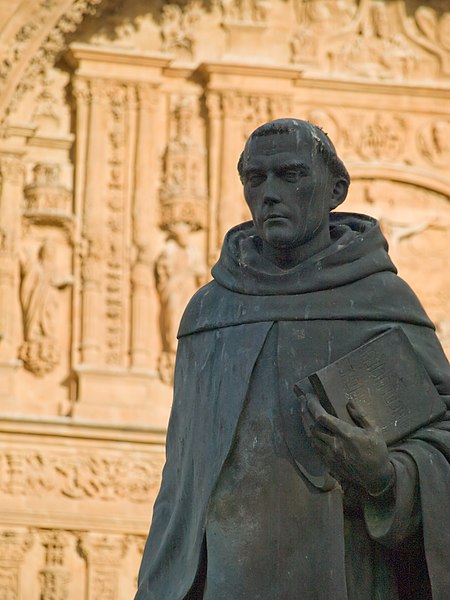Francisco de Vitoria was a Spanish Roman Catholic philosopher, theologian, and jurist of Renaissance Spain. He is the founder of the tradition in philosophy known as the School of Salamanca, noted especially for his concept of just war and international law. He has in the past been described by scholars as the "father of international law", along with Alberico Gentili and Hugo Grotius, though some contemporary academics have suggested that such a description is anachronistic, since the concept of postmodern international law did not truly develop until much later. American jurist Arthur Nussbaum noted Vitoria's influence on international law as it pertained to the right to trade overseas. Later this was interpreted as "freedom of commerce".
Statue of Francisco de Vitoria at San Esteban, Salamanca
Statue of Francisco de Vitoria, in Vitoria-Gasteiz
The School of Salamanca is an intellectual movement of 16th-century and 17th-century Iberian Scholastic theologians rooted in the intellectual and pedagogical work of Francisco de Vitoria. From the beginning of the 16th the traditional Catholic conception of man and of his relation to God and to the world had been assaulted by the rise of humanism, by the Protestant Reformation and by the new geographical discoveries and their consequences. These new problems were addressed by the School of Salamanca. The name is derived from the University of Salamanca, where de Vitoria and other members of the school were based.
University of Salamanca
17th century classroom at the University of Salamanca
Francisco Suárez
Diego de Covarrubias






